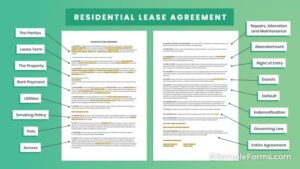
Welcome to the wild world of Debt recovery, where the quest for cash feels like a superhero movie with everyone vying for the title of financial victor! Picture yourself donning your cape, armed with strategies that could make even the most stubborn debts quiver in fear. Buckle up as we explore the rollercoaster of recovery methods that can transform your financial fate from ‘Oh no!’ to ‘Oh yes!’ with a sprinkle of pizzazz!
From legal shenanigans to smart debt management tactics, this is where we dish out the juicy details on how to not just survive but thrive in the land of debt recovery. So grab your magnifying glass and let’s examine how to tackle those pesky debts while making our wallets sing!
Debt Recovery Strategies
In the world of finance, debt recovery is akin to sleuthing in a mystery novel — it requires strategy, wit, and sometimes a bit of legal finesse. Whether you’re a business or an individual chasing after owed funds, knowing the tactics at your disposal can make the difference between a lost cause and a successful outcome. Let’s delve into the various methods of debt recovery that can help you reclaim what’s rightfully yours, garnished with a sprinkle of humor because, let’s face it, dealing with debts can be a bit dreary.
Methods of Debt Recovery
Debt recovery can be approached using a variety of strategies, each with its own flair and efficacy. Understanding these methods can empower creditors to choose the best route for their situation. Below are some popular strategies:
- Friendly Reminders: Sometimes, a gentle nudge is all it takes. Sending polite letters or emails to remind debtors of their overdue payments can foster goodwill and often leads to immediate payments.
- Payment Plans: Flexibility can work wonders. Offering debtors a structured payment plan allows them to repay in manageable chunks, making it easier for them and more likely for you to recover funds.
- Debt Collection Agencies: When all else fails, hiring professionals can be a game-changer. Collection agencies specialize in recovering debts and may employ various techniques, such as skip tracing, to track down elusive debtors.
- Legal Action: Sometimes, you must bring out the big guns — that’s where legal action comes into play. Filing a lawsuit may seem daunting, but it can be effective, especially when dealing with larger debts.
Implementing these strategies can significantly boost your chances of successful debt recovery, leading to a happier balance sheet and less stress.
Successful Debt Recovery Cases
The proof of the pudding is in the eating, or in this case, the proof of successful debt recovery lies in the case studies. Here are a few success stories that exemplify effective strategies:
- Case Study 1: A small business, XYZ Corp, struggled to recover $10,000 owed by a client. After sending a series of friendly reminders and escalating to a payment plan, they eventually received 75% of the debt within three months, while maintaining the client relationship.
- Case Study 2: A retailer hired a collection agency after a customer defaulted on a $5,000 credit account. The agency used professional negotiation tactics and managed to recover the full amount in just six weeks, proving that sometimes a third party can work wonders.
- Case Study 3: For a larger sum of $50,000 owed by a contractor, a construction firm opted for legal action. They filed a lawsuit, which led to a court-ordered payment plan that resulted in the recovery of all funds within a year. Talk about a legal eagle swooping in for the win!
These cases demonstrate that with the right strategy, even daunting debts can be recovered, turning frowns upside down!
The Role of Legal Action in Debt Recovery
Legal action is the nuclear option in the world of debt recovery. It’s not to be entered into lightly but can be crucial in certain circumstances. Here’s how legal action plays its part:
- Formalizing the Obligation: When legal action is initiated, it often formalizes the debtor’s obligation to pay. A court ruling can serve as a powerful motivator.
- Asset Recovery: If the debtor possesses valuable assets, legal action can lead to garnishment of wages or liens on property, enabling recovery of the owed amounts.
- Deterrent Factor: The mere threat of legal action can sometimes prompt payment. Debtors are often more willing to settle when faced with the prospect of court.
In conclusion, while legal action may not be the first step on the debt recovery ladder, it certainly plays an essential role in the toolbox for those navigating the sometimes murky waters of outstanding debts. A strategic approach, coupled with a sense of humor, can make all the difference in your quest for financial recovery.
Debt Management Techniques
Managing debt can sometimes feel like trying to juggle flaming torches while walking a tightrope over a pit of hungry alligators. But fear not, dear reader! With the right techniques, you can transform your financial circus into a well-orchestrated performance. Let’s dive into some practical tips for effectively managing and reducing debt, explore the ins-and-outs of debt consolidation, and uncover how credit counseling can act as your financial safety net.
Practical Tips for Managing and Reducing Debt
Managing debt is like playing a game of chess — you need strategy and foresight. Here are some practical tips to keep your financial pieces in check:
- Create a Budget: Establishing a detailed budget helps you visualize your income and expenses. It’s the financial map that keeps you from wandering into the land of debt.
- Prioritize Debts: Focus on debts with the highest interest rates first. This strategy helps you save money in the long run. Think of it as slaying the dragon that’s breathing fire on your finances.
- Cut Unnecessary Expenses: Take a hard look at your spending habits. Are those daily lattes and impulse online purchases really worth it? Channel your inner superhero and save those dollars for debt repayment!
- Automate Payments: Set up automatic payments to ensure bills are paid on time. This prevents late fees and helps you dodge the dreaded debt monster lurking in the shadows.
- Increase Income: Consider a side hustle or selling unwanted items. Every extra dollar you make can be a step closer to freedom. Embrace your inner entrepreneur and get creative!
Advantages and Disadvantages of Debt Consolidation
Debt consolidation often appears as a shining beacon of hope for those drowning in multiple debts. However, it’s essential to understand the pros and cons before taking the plunge.The advantages include:
- Simplified Payments: Combining multiple debts into one loan means one monthly payment to manage. It’s like merging all your relationships into one epic love story.
- Lower Interest Rates: Debt consolidation can potentially secure lower interest rates, saving you money. Who wouldn’t want a discount on their financial burdens?
- Improved Credit Score: Paying off existing debts can positively impact your credit score. A better score opens doors to better financial opportunities — just like VIP access to a concert.
However, debt consolidation also has its downsides:
- Fees and Costs: Some consolidation loans come with fees that can add to your debt. It’s essential to read the fine print — you don’t want to unlock a treasure chest only to find it filled with more bills.
- Extended Terms: While monthly payments may be lower, you could end up paying more over time due to extended repayment terms. It’s like stretching out a rubber band — it can snap back if you stretch it too far!
- False Sense of Security: It can be tempting to rack up new debts after consolidation, thinking you’re in the clear. Remember, just because the tide has receded doesn’t mean the sharks aren’t still lurking.
Impact of Credit Counseling on Debt Management
Credit counseling can serve as your financial GPS, helping to navigate the often confusing world of debt management. With services that offer budgeting assistance and debt management plans, credit counseling can be a game changer. Here are some key impacts:
- Personalized Guidance: Credit counselors provide tailored advice based on your financial situation. Think of them as your personal financial trainers, cheering you on while you lift those monetary weights.
- Debt Management Plans: Many counseling services offer structured plans to help pay off debts over time, often with negotiations for lower interest rates. It’s like having a coach who negotiates better contracts for you.
- Financial Education: Counselors often teach fundamental financial concepts, empowering you to make informed decisions moving forward. Knowledge is power; think of it as earning your financial black belt.
Credit counseling serves as a proactive approach to managing debt and preventing future financial pitfalls. It’s an investment in your financial education that pays dividends for years to come.
Financial Tools for Debt Relief

If you’re drowning in a sea of debt and feeling like a fish out of water, it’s time to throw out that life raft made of credit cards and instead, dive into some financial tools that can help you swim back to shore. From home equity loans to estate planning trusts, and even currency trading strategies, we’re about to explore methods that could turn your financial ship around.
Utilizing Home Equity Loans for Debt Relief
Home equity loans can be your financial superhero when it comes to debt relief. Imagine your home as a giant piggy bank, and you’re just waiting to crack it open. By leveraging the equity in your home, you can obtain a loan with potentially lower interest rates than your existing debts. Here’s a quick plan for utilizing home equity loans effectively:
- Assess Your Equity: Determine how much equity you have by calculating the current market value of your home, then subtracting your mortgage balance. This is your treasure chest!
- Shop Around for Rates: Not all loans are created equal. Compare lenders like you would compare ice cream flavors; find the one that best suits your needs without breaking the bank!
- Use Funds Wisely: Use the funds from the loan to pay off high-interest debts. Think of it as trading in your rusty old car for a sleek new model, but don’t forget to keep up with the new payment.
- Plan for Payments: Create a repayment schedule that fits within your budget, because no one wants to be on the hook for a loan longer than their next Netflix binge!
Importance of Establishing an Estate Plan Trust
Establishing an estate plan trust is not just for the wealthy elite or those with a collection of rare stamps; it’s crucial for everyone, especially during debt recovery. A trust can safeguard your assets from creditors like a knight in shining armor, protecting your hard-earned belongings.Here’s why setting up an estate plan trust is essential:
- Protect Your Assets: A trust separates your personal assets from your liabilities, making it harder for creditors to lay claim to your hard-earned goodies.
- Control Over Distribution: With a trust, you dictate how your assets are distributed after your passing, ensuring your loved ones aren’t left with a pile of debt and nowhere to turn.
- Tax Benefits: Some trusts come with tax advantages that can leave you and your heirs with more dough in the long run.
- Peace of Mind: Knowing your assets are protected allows you to focus on recovering from debt, rather than worrying about what would happen if life throws you a curveball.
Currency Trading Strategies for Cash Flow Improvement
Currency trading can sound as intimidating as trying to solve a Rubik’s cube blindfolded, but with the right strategies, it can become a valuable tool for improving cash flow for debt repayment. Enter the world of forex trading, where you can make your money work harder than you do.Consider these currency trading strategies:
- Day Trading: This involves buying and selling currency pairs within the same day. It’s fast-paced, like a game of dodgeball, but if played wisely, it can yield quick returns for your debt repayment fund.
- Swing Trading: If day trading feels too frenetic, swing trading allows you to hold positions for several days or weeks. Think of it as catching the waves instead of trying to ride the surf all at once.
- Carry Trade: This strategy involves borrowing from a currency with a low interest rate and investing in one with a higher rate. Basically, you’re playing the interest rate field like a pro footballer aiming for the goal.
- Automated Trading Systems: If you’re not a fan of staring at screens all day, consider using automated trading systems. They execute trades for you based on pre-set criteria, like having an assistant who knows what you want before you do!
Final Conclusion

As we wrap up our thrilling escapade through the realms of Debt recovery, remember that conquering debt is less about the battles you lose and more about the strategies you employ to win the war. With the right mix of management techniques and financial tools, you can strut down the path of recovery with a swagger that says, “I’m back, baby!” Now go forth and unleash your newfound knowledge—may your debts tremble and your finances flourish!
Commonly Asked Questions
What is debt recovery?
Debt recovery is the process of collecting owed money from individuals or businesses who have failed to pay their debts.
How can I improve my chances of debt recovery?
Using clear communication, proper documentation, and sometimes legal action can significantly enhance your chances of successful debt recovery.
Is it worth hiring a professional for debt recovery?
Yes, professionals often have the expertise and resources that can make the recovery process quicker and more efficient.
What should I do if a debtor refuses to pay?
It may be time to consider legal options or negotiate a payment plan that is feasible for both parties.
Can debt recovery affect my credit score?
Yes, unresolved debts can negatively impact your credit score, especially if they go into collections.







